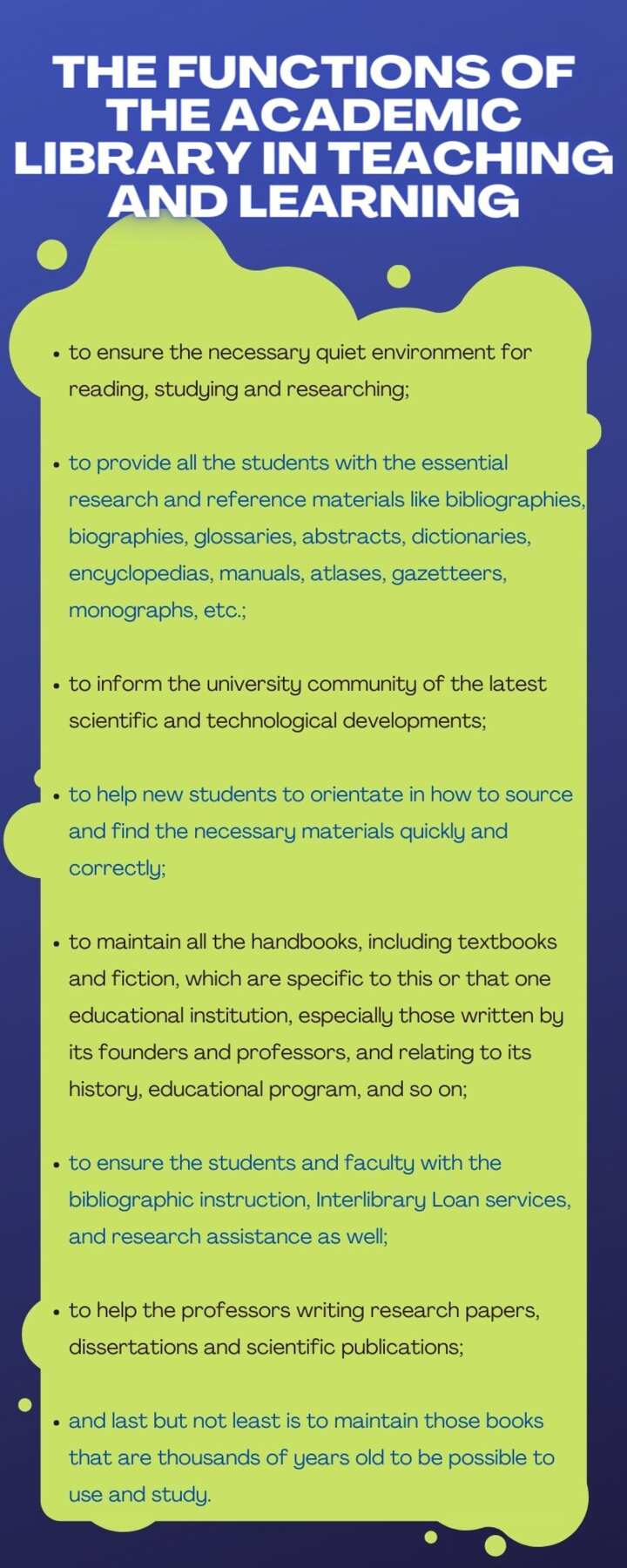University Acknowledged: Academic Librarians
Anyone with or currently pursuing an MLIS, MLS, etc., has attended a university class and likely used that university’s library in some capacity. These libraries are different in many aspects from their public, corporate, or special counterparts. Their purpose is as unique as their users.
When it comes to academic libraries, there is a need for a variety of librarian specialties. From music to technology and everything in between, these librarians are usually assigned a group of topics in which to specialize. Some of the librarians I’ve worked with specialized in literature as well as religious studies primarily because they had the academic necessary. If I were so blessed with an academic librarian role, my specialty would possibly include history and similar liberal arts topics, given my degree in history.
Regardless of if they are assigned these specialties, they must increasingly make their service abilities and availabilities known to their users. Well-formed websites and being easily accessible to their users is no longer an option like years ago whereas it’s now a requirement. According to the ALA, academic librarians are often tasked with the following:
- Consult with individuals in analyzing, identifying, and fulfilling their information needs
- Create campus-wide information literacy programs and deliver classroom instruction to strengthen information literacy skills
- Select, organize, and facilitate access to information in a variety of formats
- Keep abreast of technological advancements and develop strategies to take advantage of them
- Plan, implement, and administer computer-based systems, and electronic databases design and manage web sites
- Collaborate with classroom faculty, computer specialists, and instructional developers
- Contribute to effective teamwork among colleagues
- Participate in and lead public relations efforts to promote and raise funds for academic libraries
Since these duties are common expectations for an academic librarian, it’s ideal to have relevant experience stated clearly on your resume as well as on LinkedIn. If any of the items above are not part of your background, it may be worthwhile to gain that skill. Volunteering and internships with libraries are an excellent way to accomplish this goal. It can also be helpful to join free listservs to keep in the loop about current library topics via email.
Since a large part of academic librarianship is being an active part of campus life, those in the role need to be prepared to engage with their university’s students, staff, and faculty. A librarian who has established a positive relationship with the campus community will be more likely to organically encourage the use of and appreciation for the library.
In Nigeria, a news site called Legit.ng lists these things that users should know about this type of librarian in the image below.
Not all students will have a complete understanding of what the librarian can do for them. However, this is where the librarians come in as an integrated part of the community. One librarian I used to work with had been a student himself and had taken a leadership role during his time at the university. Then, when he’d begun to work in the library, he was already well-known by faculty and staff as someone they could come to for anything library related. He took pride in the fact that he easily networked with the campus community. He and other librarians were well-known on the small campus because of their purposeful involvement with the faculty and students.
Another significant part of the academic librarian’s job is knowing how to find the needed materials quickly. In this age of instant gratification and AI-infused search engines, a librarian has unprecedented competition to present valuable resources. Many times, students will require information literacy training to show them how to use the many databases available to them. The academic librarian(s) responsible for teaching this should be well-versed in presenting it in an easily comprehended way.
The demands of this kind of role may be overwhelming for some, as it is not for everyone. There is a constant need for building positive relationships across campus (and with virtual students, of course), as well as the expertise needed for locating and providing resources quickly. It isn’t easy to be an academic librarian, and they are sometimes the unsung heroes of the university research realm.
Are you an academic librarian? If not, do you, like myself, hope to be one someday?


Comments are closed.